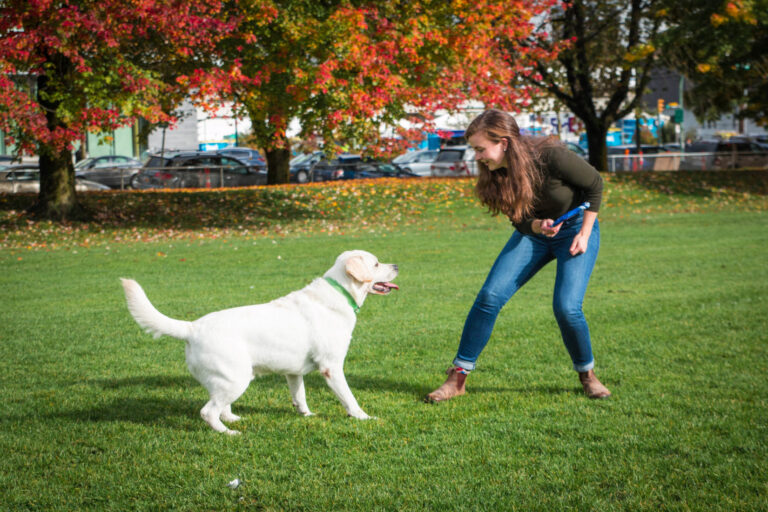Dogs have long been celebrated as humanity’s most faithful companions, and for good reason. These remarkable pets continue to capture hearts worldwide, offering unparalleled companionship that enriches our lives in countless ways. When considering the perfect pet companion, dogs consistently emerge as the ultimate choice, bringing a unique blend of loyalty, intelligence, and unconditional love to our homes. Let’s delve into why these extraordinary animals have earned their reputation as the ultimate pet companions.
1. Unwavering Loyalty and Emotional Bond
Dogs possess an extraordinary capacity for emotional connection that sets them apart from other pets. Their ability to form deep, lasting bonds with their human families is truly remarkable. Research shows that dogs release oxytocin, often called the “love hormone,” when interacting with their owners, mirroring the same biological response humans experience when bonding with loved ones. This unique neurochemical connection explains why dogs consistently demonstrate unwavering loyalty, often going to extraordinary lengths to protect and comfort their human companions.
2. Health Benefits and Active Lifestyle
Having a dog as a companion contributes significantly to both physical and mental well-being. Dog owners generally lead more active lifestyles, as regular walks and playtime become essential parts of their daily routine. Studies indicate that dog owners have lower blood pressure, reduced stress levels, and decreased risk of cardiovascular disease. The necessity of daily exercise with a dog helps combat sedentary lifestyles, promoting better overall health outcomes and increased longevity. This natural encouragement to stay active makes dogs particularly valuable companions in our increasingly indoor-oriented world.
3. Social Facilitators and Connection Builders
Dogs serve as remarkable social catalysts, helping their owners forge connections within their communities. Whether at dog parks, during neighborhood walks, or at pet-friendly establishments, dogs naturally facilitate social interactions between people who might otherwise remain strangers. This social aspect is particularly beneficial for individuals who struggle with social anxiety or live alone. The presence of a dog can make social situations more comfortable and provide common ground for conversation. Additionally, dogs help teach children important social skills, empathy, and responsibility, making them fantastic family pets.
4. Therapeutic Support and Mental Health
The therapeutic value of dogs extends far beyond basic companionship. Their presence has been shown to reduce anxiety, depression, and feelings of loneliness. Dogs provide unconditional love and support, offering comfort during difficult times without judgment. Their ability to sense human emotions and respond with affection makes them natural therapeutic allies. This innate capability has led to their widespread use in various therapeutic settings, from hospitals to schools, where their presence helps reduce stress and promote emotional healing. The consistent emotional support they provide makes them invaluable companions for individuals dealing with mental health challenges.
Key Takeaways:
- Dogs form unique neurochemical bonds with humans through oxytocin release
- Regular exercise with dogs promotes better physical health and longevity
- Dogs facilitate social connections and community building
- Canine companions provide natural therapeutic support for mental health
- Dogs help develop empathy and responsibility in children
5. Natural Protectors and Home Security
Dogs possess an innate protective instinct that makes them exceptional guardians of both home and family. Their acute senses, particularly their superior hearing and smell, allow them to detect potential threats long before humans can. This natural vigilance, combined with their territorial nature, provides an additional layer of security that goes beyond conventional home security systems. Even smaller breeds can serve as effective alert systems, while larger dogs often act as natural deterrents to potential intruders. This protective nature extends beyond physical security to emotional protection, as dogs often sense when family members are vulnerable or distressed.
6. Cognitive Development and Intelligence
The remarkable intelligence of dogs continues to amaze researchers and pet owners alike. Dogs can understand over 150 words, interpret human body language, and solve complex problems. Their cognitive abilities make them highly trainable and capable of learning various commands and tasks. Studies have shown that dogs possess emotional intelligence comparable to that of a 2.5-year-old child, enabling them to understand and respond to human emotions with remarkable accuracy. This intellectual capacity allows for engaging training sessions and meaningful interactions that strengthen the bond between dog and owner.
7. Adaptability and Lifestyle Compatibility
One of the most compelling aspects of dogs as pets is their incredible adaptability to different living situations and lifestyles. From tiny apartments in busy cities to sprawling rural properties, dogs can adjust their behavior and energy levels to suit their environment. Different breeds offer varying temperaments and exercise requirements, making it possible for almost anyone to find their perfect canine match. Whether you’re an active outdoor enthusiast or prefer quiet evenings at home, there’s a dog breed that will complement your lifestyle perfectly.
8. Stress Relief and Work-Life Balance
The presence of dogs in our lives acts as a natural stress buffer and helps maintain a healthy work-life balance. The simple act of petting a dog has been shown to lower cortisol levels and increase production of feel-good hormones like serotonin and dopamine. Dogs require regular care and attention, which forces their owners to take breaks from work, maintaining a more balanced daily routine. Their playful nature and ability to live in the moment help remind us to slow down and enjoy life’s simple pleasures.
9. Teaching Life Skills and Responsibility
Dogs provide invaluable opportunities for learning important life skills, especially for children and young adults. Caring for a dog teaches:
- Time management through regular feeding and exercise schedules
- Empathy and emotional intelligence through understanding their needs
- Financial responsibility through budgeting for food, supplies, and veterinary care
- Consistency and patience through training and daily care routines
10. Unconditional Love and Acceptance
Perhaps the most profound reason dogs make ultimate pet companions is their capacity for unconditional love. Unlike human relationships, which can be complex and conditional, dogs offer pure, unwavering affection regardless of circumstances. They don’t judge based on appearance, status, or past mistakes. This unconditional acceptance provides a unique form of emotional support that can be particularly healing and affirming.
Additional Key Takeaways:
- Dogs provide both physical and emotional security
- Their intelligence enables meaningful interactive relationships
- Different breeds offer solutions for various lifestyle needs
- Dogs help maintain healthy daily routines and work-life balance
- Their unconditional love offers unique psychological benefits
This comprehensive exploration of why dogs make the ultimate pet companions demonstrates their unmatched ability to enhance human lives through their diverse capabilities and unwavering devotion. From providing security and emotional support to facilitating personal growth and social connections, dogs truly earn their title as man’s best friend through their multifaceted contributions to our daily lives.
Frequently Asked Questions
Q: How much exercise does a dog typically need daily?
A: Most dogs require 30-60 minutes of physical activity daily, depending on their breed, age, and energy level. This can include walks, play sessions, or structured exercise activities. Working and sporting breeds may need up to two hours of daily exercise.
Q: Can dogs really understand human emotions?
A: Yes, research shows that dogs can recognize human emotions through facial expressions, voice tone, and body language. They have evolved alongside humans for thousands of years, developing the ability to interpret and respond to our emotional states effectively.
Q: What makes dogs better pets than other animals?
A: Dogs excel as pets due to their unique combination of trainability, emotional intelligence, and social nature. Their ability to understand complex commands, provide protection, and offer unconditional love makes them exceptionally well-suited for human companionship.

















+ There are no comments
Add yours